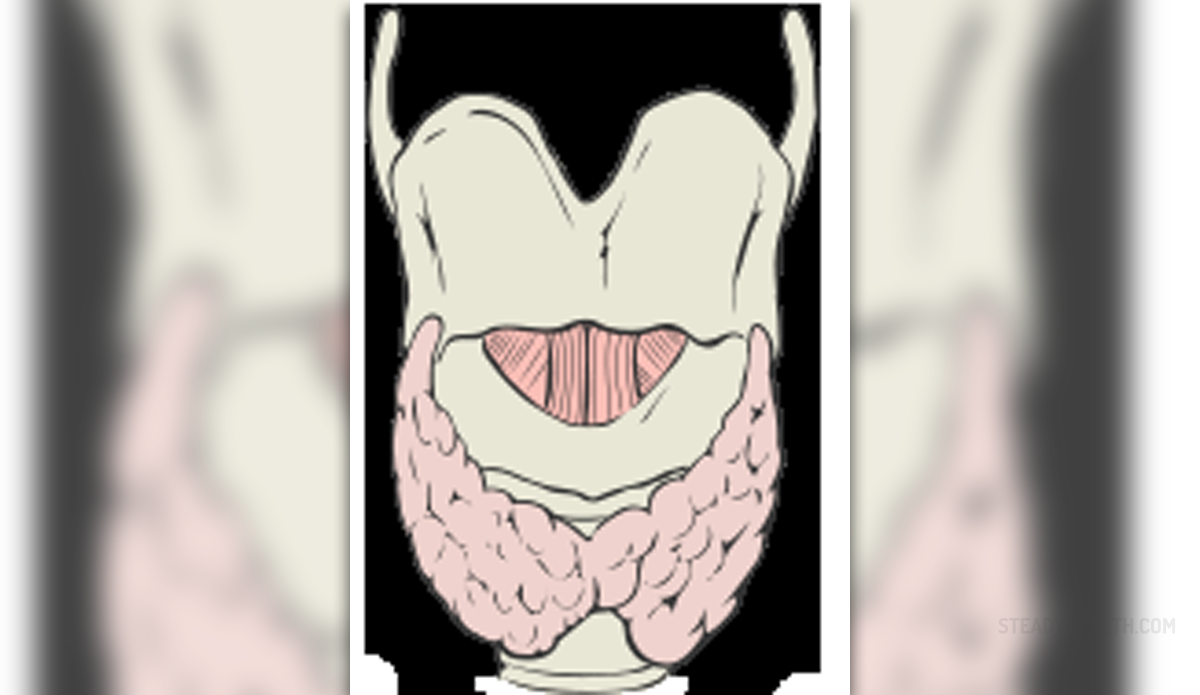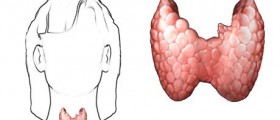
The medical term for the low thyroid gland is the hypothyroidism, although it is also called inactive thyroid gland. Hypothyroidism is a condition when the thyroid gland does not produce enough of its hormones, T4 and T3, which are very important for a proper functioning of the whole organism because these hormones regulate the functioning of many body systems. Low thyroid gland is a condition that is more frequent in women then in men.
Causes of low thyroid gland
There are several causes for the occurrence of hypothyroidism. Thyroiditis is a condition, which is, in the majority of cases, responsible for the occurrence of hypothyroidism. It is an autoimmune disorder when the body’s own immune system produces antibodies that attack the thyroid gland. Unfortunately, the real cause for thyroiditis is not established yet. Iodine insufficiency is another cause that may lead to the inactive thyroid gland and this happens because this element is needed for the production of the thyroid gland hormones.
In women, hypothyroidism may occur because of the increased levels of progesterone and estrogen. Other causes for low thyroid gland are the disorders that affect hypothalamus, pituitary gland and thyroid gland, as well as radiation therapy that is used for the curing of hyperthyroidism.
Symptoms of low thyroid gland
Hypothyroidism is a condition that has many warning signs, which may be mild or severe and each person may experience them in a different way. The most frequent symptoms of low thyroid gland are depression, lethargy and irritability. Furthermore, the people with this disorder may experience difficulty to concentrate, memory problems or lack of energy and motivation when performing daily tasks. Constant fatigue and tiredness, as well as dizziness and vertigo are also some of the signs of the inactive thyroid gland. Moreover, some people with hypothyroidism may experience hypotension or low blood pressure and constipation. In women, low thyroid gland usually causes menstrual problems, such as irregular menstruation or heavy menstrual flow. Other symptoms of this condition are sensitivity to cold, dry and pale skin, pain in the muscles and problems to lose weight.
To diagnose inactive thyroid gland, a patient must do a blood test in order to check the levels of the hormones of the thyroid gland. When hypothyroidism is diagnosed, the doctor prescribes thyroxine tablets, which should be used every day. Thyroxine tablets are taken for almost a year although there are cases when these tablets must be used for the rest of the patient’s life.





-During-Pregnancy_f_280x120.jpg)




-In-Infants-And-Older-Children_f_280x120.jpg)


-In-Adults_f_280x120.jpg)



Your thoughts on this
Loading...